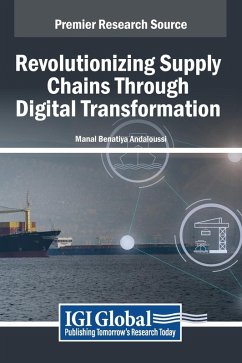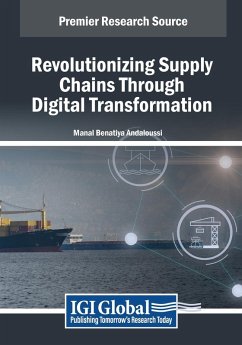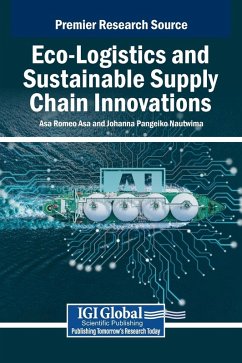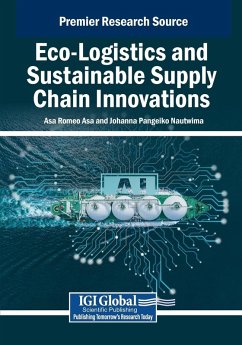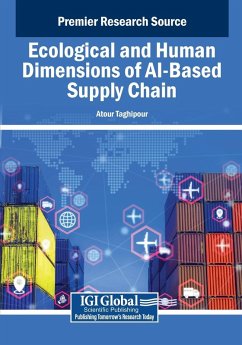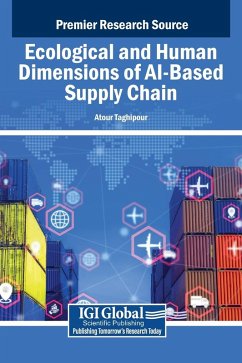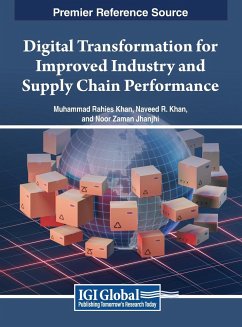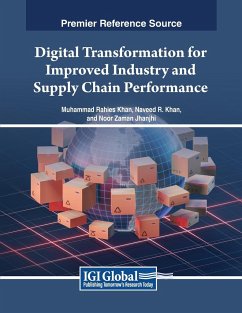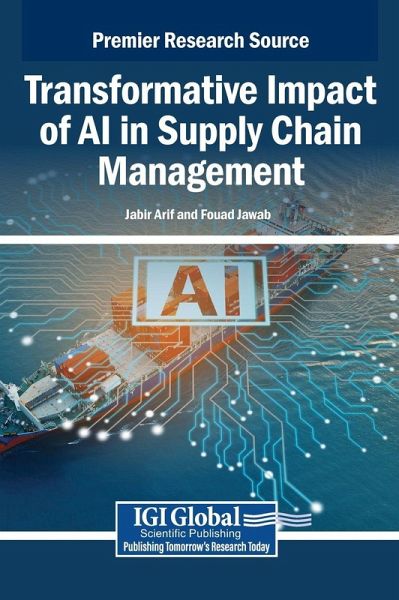
Transformative Impact of AI in Supply Chain Management
Versandkostenfrei!
Versandfertig in 1-2 Wochen
200,99 €
inkl. MwSt.

PAYBACK Punkte
100 °P sammeln!
Artificial intelligence (AI) plays a transformative role in shaping the future of supply chains. AI-driven technologies, including machine learning (ML), predictive analytics, and autonomous systems, are revolutionizing traditional supply chain processes. They enable real-time decision-making, demand forecasting, risk management, and end-to-end visibility for Supply Chain 4.0. As a result, AI can enhance supply chain resilience, sustainability, and efficiency in the digital and increasingly globalized market. The strategic application of AI will not only reduce operational costs but also contr...
Artificial intelligence (AI) plays a transformative role in shaping the future of supply chains. AI-driven technologies, including machine learning (ML), predictive analytics, and autonomous systems, are revolutionizing traditional supply chain processes. They enable real-time decision-making, demand forecasting, risk management, and end-to-end visibility for Supply Chain 4.0. As a result, AI can enhance supply chain resilience, sustainability, and efficiency in the digital and increasingly globalized market. The strategic application of AI will not only reduce operational costs but also contribute to long-term organizational resilience and sustainability goals. Transformative Impact of AI in Supply Chain Management has broad implications for multiple sectors, providing deep insights into the transformative potential of AI in supply chain operations. It highlights the role of AI in achieving sustainability, optimizing routes and inventory management, and creating agile supply chains that can respond dynamically to market fluctuations and disruptions. Covering topics such as industrial prosperity, integrated business planning (IBP), and social sustainability, this book is an excellent resource for logistics specialists, supply chain managers, industrial engineers, operations executives, technology developers, professionals, researchers, scholars, academicians, and more.



